Israel resumes Gaza military operation after cease-fire with Hamas ends
Israel renewed its assault on the Gaza Strip Friday after the end of a weeklong truce with Hamas, pummeling the Palestinian enclave from the air while warning civilians to leave parts of southern Gaza in a sign that it intends to expand its ground offensive.
International mediators said they were still working to restore the cease-fire, which saw the release of more than 100 hostages held in Gaza and 240 Palestinian prisoners held in Israeli jails. The pause had raised hopes for a broader deal, but that appeared to have collapsed as the two sides traded blame while smoke rose from Gaza's ruined skyline and sirens wailed in Israeli border communities.
The resumption of fighting will raise fears for Palestinian civilians in Gaza, as well as the remaining 140 or so hostages, as Israel grapples with the tension between its two stated war goals — destroy Hamas and free those taken captive in the Oct. 7 terror attack.
The prospect of Israel expanding its ground campaign southward will also heighten international anxiety, including in the White House, which has warned its close ally to moderate its military tactics to reduce further civilian casualties and displacement.
Talks and fighting
The pause in fighting, brokered by the United States, Qatar and Egypt, was set to expire at 7 a.m. local time (midnight ET). In the last hour of that deal, Israel said Hamas fired rockets toward its territory from Gaza, at least one of which it managed to intercept, but that “a number” of others got through.
Sirens sounded in Israeli communities near the border with the Palestinian enclave, while an NBC News team in the southern city of Sderot witnessed rockets being intercepted. Israeli officials have not said whether anyone was injured or killed by rockets from Gaza.
Follow live updates on the Israel-Hamas war
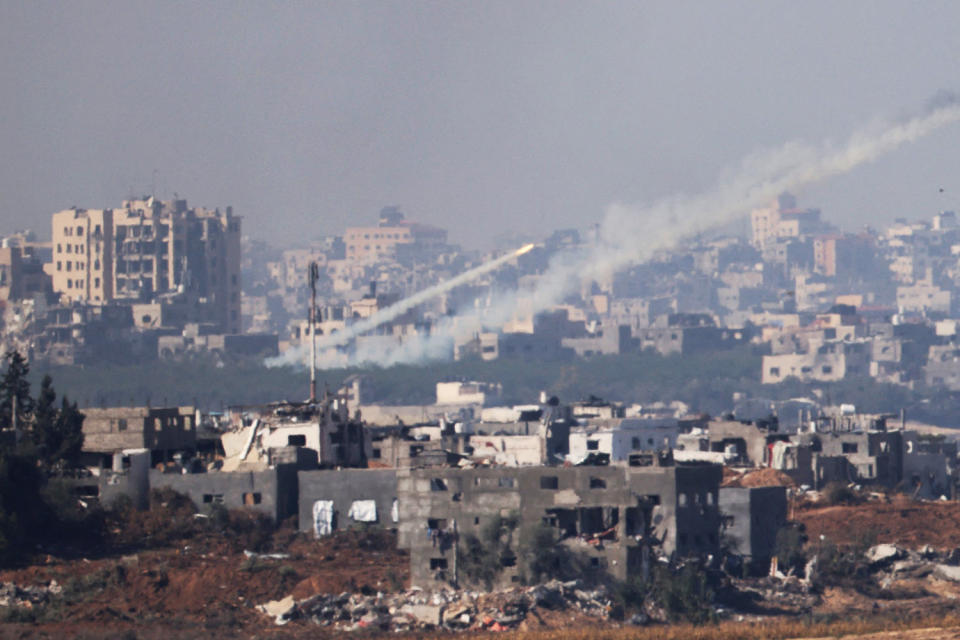
Hamas in turn blamed Israel, saying it had refused "throughout the night to accept all offers to release other detainees."
Qatar, which hosts some Hamas leadership, expressed "deep regret" that fighting had resumed without an extension. The government added in a statement that negotiations were continuing.
The Israel Defense Forces said it had "resumed combat" against Palestinian militants, and that “IDF fighter jets are currently striking Hamas terror targets in the Gaza Strip.” The office of Israeli Prime Minister Benjamin Netanyahu said Hamas had “violated the plan" and "did not live up to its duty to release all the kidnapped women today."
The government media office in Gaza, which is run by Hamas, a banned terror group in the U.S. and elsewhere, said that the Israeli army had begun “to continue its brutal war against our Palestinian people.”
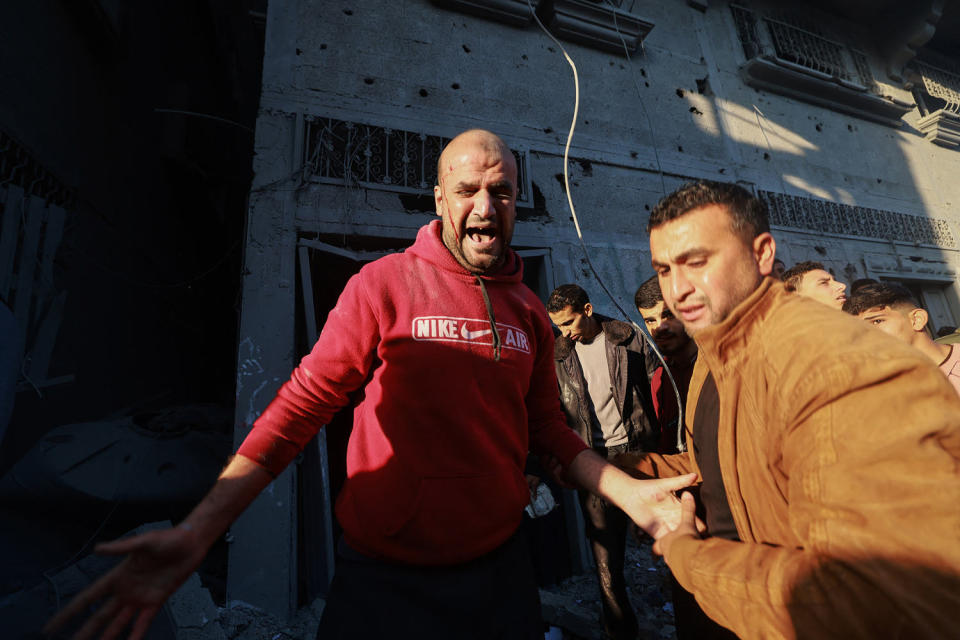
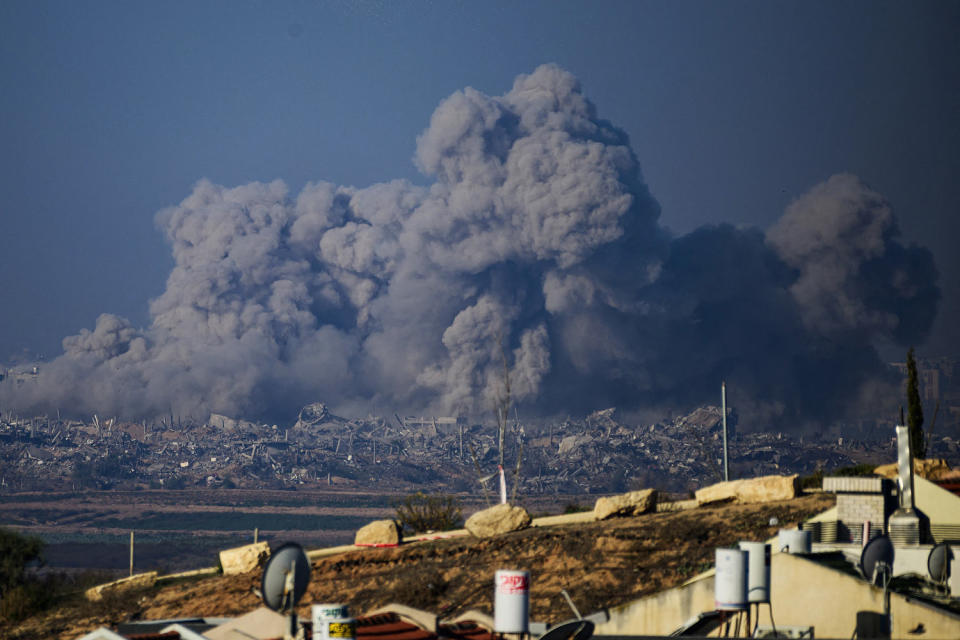
Gazans reported seeing and hearing airstrikes across the enclave's north and south, as well as artillery shelling along the border to the east. Hamas-affiliated media reported heavy gunfire and that clashes were occurring in the north, the focus of Israel's campaign so far. And NBC News' team in Gaza witnessed dead and injured people being taken to hospitals in the center and south of the strip.
"Every 10-15 minutes, there have been strikes, some of it 500 meters (550 yards) away from us," Mohammad Ghalayini, 44, who lives in the southern Gaza city of Khan Younis, told NBC News in a voice note, with the distinct buzz of an Israeli drone discernible in the background.
'Crammed' into southern Gaza
Israel had previously told Palestinians to leave northern Gaza, the focus of its initial military campaign, fueling an exodus of displaced residents now packed into the south of the enclave. But on Friday it dropped new leaflets on Khan Younis, warning residents that it had now become a combat zone and telling them to relocate again to the southern city of Rafah, on the border with Egypt.
The IDF also published an online interactive map, dividing Gaza into hundreds of zones that it said would be used to warn residents where the fighting would be centered.
Ghalayini, who received one of the leaflets, voiced the common Palestinian belief that this was part of a broader plan to get them to leave Gaza so Israelis can settle there. Although a few Israeli politicians have voiced support for the idea, Netanyahu has said Israel is trying to remove Hamas and does not seek to govern or occupy Gaza.
"One fear is that, when crammed into a smaller area, people will break out through the border and Egypt may have no choice" but to accept them, Ghalayini said.
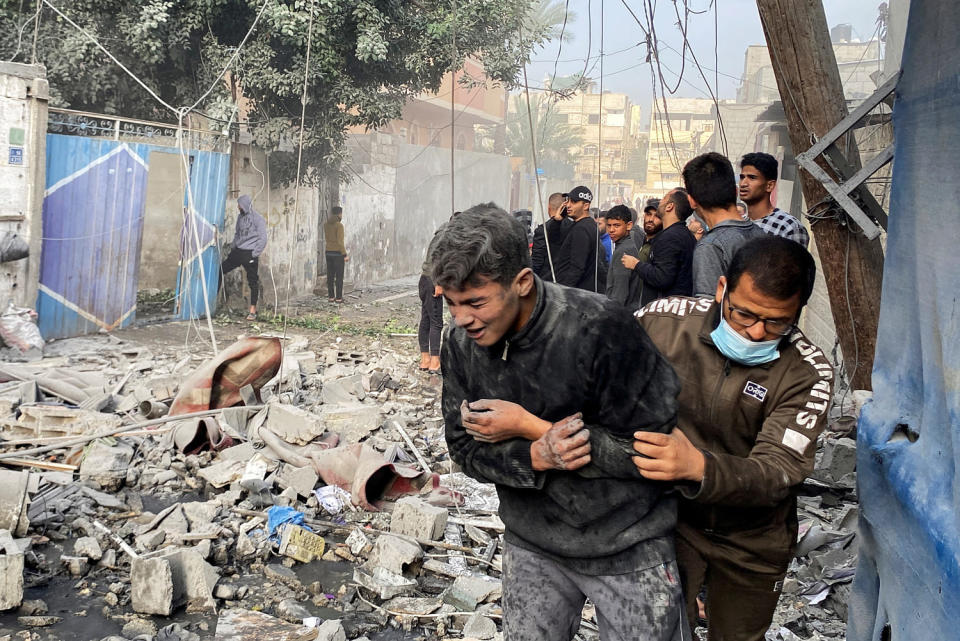
The renewed outbreak of fighting follows a week of respite for the 2.3 million Palestinians in Gaza, who have endured almost two months of aerial and ground assault, killing more than 15,000 people, including more than 5,000 children, according to local authorities.
Israel launched the campaign after Hamas' Oct. 7 terror attack in which some 1,200 people were killed and around 240 taken captive, according to the IDF.
The recent pause allowed aid into the besieged, impoverished enclave, which has lurched further into a humanitarian crisis during the war. During that time, 105 hostages were released from Gaza, officials said, while Israel has released 240 Palestinians held in Israeli jails.
Now there are also fears of the violence spreading, after a deadly shooting at a bus stop in Jerusalem and an Israeli raid on the Jenin refugee camp in the occupied West Bank. Palestinian health officials said two boys were killed in the Israeli raid, one of them 8 years old.
But a week ago, after a pressure campaign by the hostages' families and a shift in public opinion, Israel agreed with Hamas to pause the fighting so some of the abductees could be liberated.
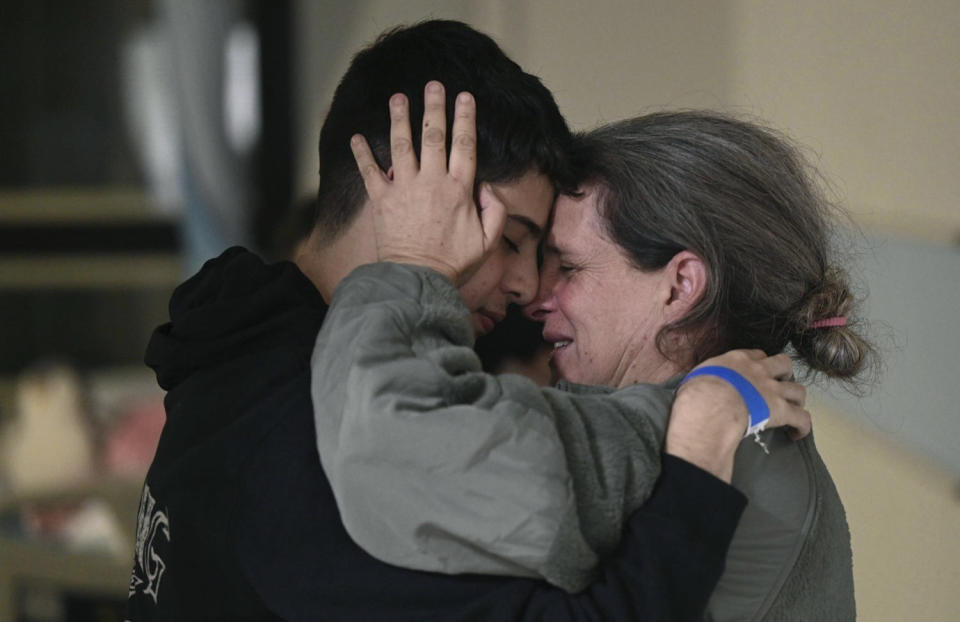
With most Israelis supportive of a war they see as essential to their own security, Netanyahu has always said that the war would restart with full force after negotiations had run their course.
The U.S. has publicly urged its ally to operate with much greater care for civilians in any renewed military campaign.
Secretary of State Antony Blinken, said Thursday that he had discussed with Israeli leaders the imperative “that the massive loss of civilian life and displacement of the scale that we saw in northern Gaza not be repeated in the south.” He added: “As I told the prime minister, intent matters, but so does the result.”
Hours later, the fighting had resumed.
After a week in which diplomacy was given priority, violence was on Friday once again the dominant language of this struggle.
This article was originally published on NBCNews.com

